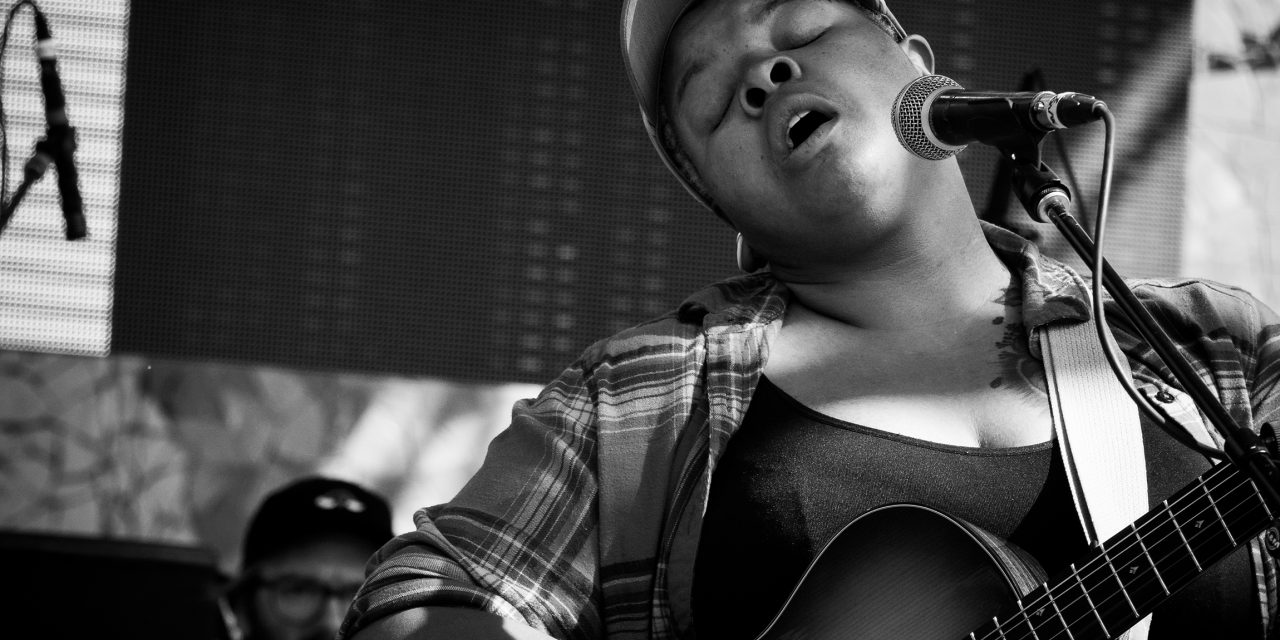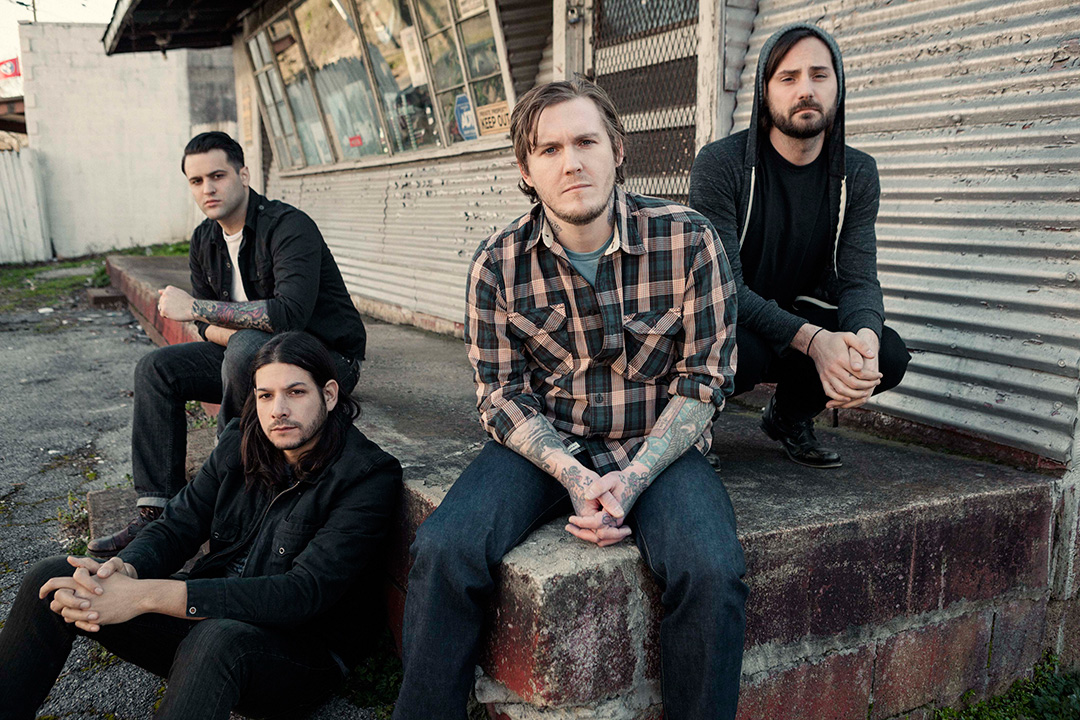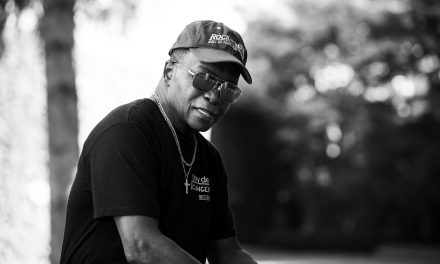Interview: Stephanie Anne Johnson
08.31.24
Interview and photos by Sattva Photo
Seattle Music News: Stephanie Anne Johnson, thanks so much for taking time out at Bumbershoot for this interview. I’d like to start with first asking: how’d you get started in music?
Stephanie: So I started, you know, as a lounge singer on the cruise ship. You know, all on Jennifer Hudson. Listen: it’s a great way for musicians that are just out of music school to cut their teeth. I learned how to talk to a crowd. I learned how to work a room. I learned how to, you know, plan my set. I had to endeavor to learn how to take care of my voice so I wasn’t consistently screaming myself hoarse, which happened. I’m really, I’m really grateful for that, but I also learned a whole bunch of everybody else’s music.
So I came right home from working on cruise ships and went directly to the to The Voice in California. Literally, three weeks later, I was in California doing the first round auditions, and that was another lesson I had to learn about, like, pick a little talk a little you know, you sing a little bit and you rest a little bit, and you sing a little bit and you rest a bit. And this creates longevity. And I didn’t know that yet, so I got very comfortable running myself very ragged.
But I’m really grateful to have a couple of pretty close relationships with my family. And I had come from The Voice. I was home for a couple of months. I was used to playing everybody else’s music. I got hired to go down and do some theater with the Oregon Shakespeare Festival. Very excited. My mom comes to visit me, and I’m, you know, white knuckling it, and she’s like, “Well, you just like to run yourself ragged, don’t you? When are you resting? What are you eating?”
And I love her for that and so many other things. That she was able to look at me and be like, “No, you you have some power in this situation. You still have choices, even though you feel completely burnt out. Laying down and resting is a good choice, and you can do that!” So good. That was one of the big lessons from the pandemic. It’s okay to not work, right? It’s okay to lay down. It’s okay to not be consistently writing song after song after song every week. It’s okay to literally stop and smell the flowers. It’s okay to be in the backyard and reading a book. It’s okay to just be cuddling a dog and watching a Marvel movie again.
SMN: To that point, how do you navigate doing things that you love, like songwriting, with making sure you have energy for everything else in your life? Things that fill your cup can also drain your batteries, right?
Stephanie: Exactly. It’s a practice of not only drinking water, a lot of water, but also remembering to refill my water bottle and keep it with me, right? Yeah, songwriting is incredible, and I love it, and it’s one of my favorite things to do, is the song creation phase. But, you know, even if you roller skating is your favorite thing, you can’t roller skate forever. You do have to sit down and stretch at some point. And you know, you also have to go live a little life so you have something to write about. And you also have to go and be in beloved community with people to know, to figure out, to learn what is that song that everybody needs to hear? What is that message that everybody needs to hear?
A lot of my message is about love, because love has been marketed and pigeonholed as only romantic love. But we love so many things. My dude, I love this guitar so much, it’s ridiculous. And it’s not less of a love, because we don’t, you know, share finances and we don’t both breathe, you know, like it’s a relationship that we’ve built. I mean, I love my daughter. Dogs. I love my mom. I have fallen back in love with my Kindle. I love to read.
I’m on a kick of reading a lot of memoirs right now, which is nice.
SMN: What’s up right now?
Stephanie: Okay, so, so I just finished “Maybe We’ll Make It”, which is Margo Price’s memoir, and I was reading it at the same time as this one called “In the Dream House” by Carmen Machado, I think is the last name of it. But reading two different people, telling completely different stories, told in completely different ways, but there are things that these people have in common, right? They’re both women, they’re both writers, right? They both have a distinct point of view, and so I really love the mental work of letting my brain find those extraneous common grounds between people and things, because I think that also helps me write those songs that work for everybody, no matter who you are and what you’re going through.
SMN: You’re working on the new album right now. What does that process look like for you? And how do you bring story into that? And how are you pulling those out onto record?
Stephanie: This is a great question. I love this. So there’s many different ways to record records, the expensive way, the way I would really like to make records is how we made “Take This Love” in 2017 I think was when we recorded that everybody was in the same room. We had two days of recording. We got 20 some tracks in that time, and we picked our favorites, and those went on the record. I like live recordings. As someone who consumes music, I’m looking for the band talk. I’m looking for, to see all these people playing music, you know, actively doing a thing, while also actively watching for cues and hand signals to get on and off the freeway. And I love to hear that on a record. I’m also kind of really into this idea of, I want to make sounds that I can reproduce. I want to make sure that what is being recorded is what I sound like, because of where we are with technology. There’s so many ways to fudge, and, you know, I don’t want to fudge, you know. Let me use my vocal instrument.
So that’s one way to record, but it’s expensive. Right now, we’re recording in pieces, and I won’t disclose the secrets of recording with Jeff, because, you know, that’s his bread and butter, bless him.
But he’s very, very good at seeing and hearing me well enough then to help to musically present me to other people. Also, as a songwriter, I’m not a lead musician, I’m a rhythm guitar player. So I really love to leave space for other musicians to walk around in the song and enjoy themselves. Musicians are going to play better, in my personal opinion, if they’re happy to be better, and if they’ve got something to do. You can’t have an incredible guitar player to your right and not let this young person run around and enjoy the skill and their years of devotion to a thing. It’s very important to me that sure, you know, it’s Stephanie Anne Johnson and my name’s on the project. But the people that I’m performing with really humble me musically with the things they know, and the people they are.
And this feeling came to me many years ago, and it’s still one of my favorite feelings in the world: when I go to that first rehearsal with the band, or whatever, and I’m telling them, “Okay, this is the song, and this is how it goes”, and we’re playing through and I’m getting used to it, it blows my mind that these musicians that have such incredible resumes and such full schedules will take the time to come to my band rehearsal and will take the time to play the song exactly how I said to play it.
That’s a very heady feeling when you’re working with people who get called to come sit in by the Tedeschi Trucks Band and go out on the road with Amy Ray and Duff Mckagan from Guns n Roses. It’s very heady to know that people that work with those musicians, they get a call from Heart and go, they get a call from Brandi Carlile and go, will still take my phone call. It helps me remember that I’m in the cannon. I’m in community, right?
For better or for worse, Aretha Franklin and Beyoncé both have my job, right? We’re in the same industry, we’re in the same field. It’s one thing to have heroes. It’s another thing to have people where you’re willing to say, I respect their work, I respect their work ethic, and I respect the work that they put out. And I do for a lot of singers, and it pleases me to know that, we’re all trying to touch the same imaginary girl. We’re all, in our ways, trying to express life, trying to express the love or angst that we’ve experienced.
There’s also something to be said about devotion, musical devotion, spending years giving your life to the study of playing an instrument well, or when you’re like one of these multi instrumentalists, I think of them as musical polyglots, because they’re able to play, you know, Jeff Fielder, he plays guitar, keys and bass. And then I believe William has played drums.
So for this next record that we’re working on, we’ve pulled in other musicians.I had a former compatriot, a writing partner I used to work with, who told me, you know, “it’s impossible to have two drummers on record. The field will be different.” And you know, when “Sing Baby” comes out, which is this next record, there’s going to be a couple different drummers, a keyboard player, some guitarists that I really respect, and we’re going to have us a good time.
And for me, that’s what matters. This is a business, and I do want to be pragmatic about it. But also, you know, this is my dream job. Like 13 year old me wanted this so bad, and 18 year old me was, you know, freaking out as I was coming through the gates, because I remember, you know, I’m 40 years old. I remember being 18, and school’s about to start in a couple days, but I gotta go see Ani DeFranco really quick. You know, before I gotta go see Everclear, I gotta go see, you know, Modest Mouse, some of these, you know, very cool local groups, and I got to see them here at Bumbershoot. So I’m really grateful for local festivals. I’m grateful that they are willing to work with and respect local groups while mixing in these larger national touring acts. You know, balance is important.
Being a musician is not a monolith. There are musicians that do all kinds of crazy stuff. There are studio musicians who only do studio work. They, you know, play guitar by themselves. And somebody sends them the track and says, Here, do it like this. And they do it like that, and send it back in 48 hours, and they get their money, and that’s what they do. There are other musicians that work on TV. There are other musicians that were in the pit, like all of the orchestral musicians, the musicians that work for the opera and the ballet, and those people are union. You know, unions are very important to me. Don’t get me up on my soapbox!
SMN: I’m with you.
Stephanie: Word! Yeah. I belong to the Screen Actors Guild because I work for KNKX the radio station. I’m very grateful to work there. Grateful to work for an NPR station, which is not government news, to be clear, it is a nonprofit that gets money from the government, like a lot of different radio stations nationally. So it’s pretty rad.
I love that the people that I work with are also, you know, everybody’s busy, everybody’s in three or four different projects. And I love that. I have a small Rolodex of musicians that we will call to play, a couple bass players we like, couple drummers we like, couple guitarists we like, because, you know, we can’t have everybody on every gig, and a couple different keyboard players too. Because some gigs, like this one, will pay enough that I can pay for other grown adults to be on stage with me. So I love gigs like this.
SMN: Speaking about resumes, you have quite a prolific resume as well. I mean, sharing the stage with people like Mavis Staples, Cedric Burnside, many others. So I think the fact that all these musicians that you shared the stage with, are these musicians that are choosing to be like, “I want to work with you!” That’s a testament to your ability, that’s a testament to your voice, that’s a testament to what you’re building and the art that you’re creating, and the collaborative process that you’re like, engendering with that. It just says a lot about who you are as a musician and how much respect those other musicians have for you.
Stephanie: Well, thank you.
SMN: When did you know you you have have a voice?
Stephanie: I have been obsessed with the way things sound for a long time. And as a child, I was a natural mimic. So whoever said something, I would say that too. And my mom, bless her, she took us to the library a couple of times a week, and I did have a Walkman, and so we could listen to whatever we wanted and read whatever we wanted. And we’re exposed to a lot of ballet, theater, literature. We read poetry at home.
So I don’t know if I always knew I was going to be a singer. I was just always singing, making the noise. Add to that, at the time, when I was going through public school in Tacoma, like even in high school, I had sewing as a class, and I had Home Ec in middle school, and, you know, this was cooking and budgeting and such. I had choir, I had my senior year of high school, I had two periods of choir. I started taking voice lesson in middle school, like eighth grade, something like that.
And one thing that I didn’t understand that was explained to me when I was in college, or maybe a little after, the way that some of my friends that are opera singers think about it, you travel from place to place to learn from different people all about your craft and what you love about your art, and this keeps you running as an artist. All of my favorite artists are still searching for bliss. They’re still looking for new things to hear, new things to eat, new things to to taste and learn about.
SMN: And who are some of those favorite artists? If you could share the stage or studio with anyone?
Stephanie: It’s going to be BB King, Aretha Franklin, because I cannot say it enough. Sister Rosetta Tharpe. I had been playing guitar for 15 years before another guitar player, his name is Steve Stefanowicz he said, “Yeah, you got to listen to this Bonnie Raitt tune tribute to Sister Rosetta Tharpe. And I’m like, Who is this?
Because I had been told for 15 years that guitar is a white people thing that you know, “guitar is just white dudes with long hair singing in coffee shops. That’s what guitar is.” So I had been playing for many, many years before it was explained to me by other musicians that there is a long and beautiful history of black people and our relationship to various guitars. I love the Reverend Gary Davis. I want to say the recordings from the 20s and 30s in that gospel blues tradition of the traveling, itinerant preacher who would preach and sing a little bit.
So that that is my list. I mean, of course, in Prince. But for artists that are alive, whose work really gets to me, you know, I resisted for as long as I could, but like Chappell Roan is the truth. I like her so much.
What really got me was the fact that she’s been vocal on social media lately, telling people like, “No, seriously, I’m a random bitch and you’re a random bitch, so if you see me in the grocery store or whatever, don’t holler at me. Let me not be at work. You’ll know when I’m at work, I’ll be wearing a full face. You’ll see me at work, but when I’m just trying to go to the movies or whatever, like I need you to not stalk me. And if I say no, you can’t have a picture, then no, you can’t have a picture. And let’s both go about our days and have it be okay.”
I love that, and that was one of my favorite things about being a theater artist, because when the show was over, you left through the actor’s entrance. Didn’t nobody bother you. You went home, put your feet up, had a meal, maybe went to sleep, got up at maybe 10 o’clock the next morning, maybe closer to one, if I’m honest, get all your stuff together and get down to the theater again by 530. You can run it just on clockwork, on a schedule.
Oh, I love making art on a schedule, because then we get to live. Then we get to feed ourselves. You know, the whole notion of, like we were talking earlier in the conversation about running ourselves ragged, being on the endless treadmill, of chasing other people’s ideas of success, right?
This: talking to you, having an interview after a really great set with people in love and people who are nice to me, and a bunch of very nice audience members. And you know the feeling of the crowd starting smaller and getting bigger because we’re making a joyful noise, and they are liking it, and they’re coming in and out? This is success. This is joy. I’m very, very pleased.
I could be more pleased. I could handle a couple more blessings, but I’m quite content with with my lot. I have good management that has vision. I have good songs, I have good relationships, I have good boundaries. And that’s so important. It’s so, so important.
SMN: Because when you’re self employed and, especially in art, you can, you can work anytime, which means you work almost all the time without those boundaries, right?
Stephanie: That’s it. You have to have room to breathe for you as a human being, and to create the longevity in a thing that you can be devoted to for years. It’s my responsibility to set that up in a way for myself, that I create longevity. So I sleep, I eat, I exercise. I saw Brandi Carlile, and she’s another artist I really enjoy. She was walking on the treadmill and doing vocal warm ups. Oh, I stole that! I love that. I do my vocal warm ups sometimes on my exercise bike in my house. I feel like it’s important to have good cardiovascular health if I want to sing my face off until I am as old as dirt. I have to do the care now. You know, tomorrow was too late.
Let me think of other artists that are alive now that I really am obsessed with right now. Oh. Jackie Venson is a guitar player. Beautiful smile, supported by Converse, wears Chucks on stage. Really, really great, incredible guitar players. Emily Elbert, I got obsessed with her record, which is called “True Power.” She writes music in such a way and chooses music in such a way, and has her voice creates a poem. You know, I love a good contrast. I love it. Jennifer Hudson: girl shout until I feel it in my spirit! Please, and thank you. LaShun Pace, the Clark Sisters, yes, please and thank you.
But also the the mellowness and the tenderness of a good voice. That that’s quite lovely as well. Also, Samantha Fish, an incredible artist. I can’t say enough about Kingfish. This man’s guitar solos are death defying. It’s like watching someone walk a tightrope because of everything that I can hear, that he knows about theory, he knows how to get right up to that edge. There are so many different sounds that create different emotions in people. This is based on culture and time.
I love asking questions. Questions are my bread and butter. If you’re bold enough to ask, sometimes you get what you ask for. And if you’re not bold enough to ask or not knowledgable enough about yourself to ask, you can miss some of the good stuff.
SMN: Absolutely. What’s bringing you the most joy these days?
Stephanie: My joy is in community. My joy is in creating some of these beautiful moments on stage I get to fill my life with. The last time I played the Mural stage was 2018 for Pride. It was a full circle moment when we played, “Glory Be.” Because I wrote that tune about playing Pride and being distracted about knowing the words to my own song because there was a young gal, down on the grass, in bright orange shorts.
I love when you see the young people and they have joy. Another thing for me is that the chubby femmes are just out here in crop tops and there’s no bones about it. “You’re welcome for these stomach rolls.” That’s not how we grew up in the 90s with waif culture. So seeing these young people be themselves is so great.
Another thing is when the young queer children come to the shows and we recognize each other, because I can see them being cute and gay and frightened. And they can see me closing in on queer elderliness in a couple years here. It’s wonderful to get to be an example that the young queers can get old, too. They can follow their own dreams and build their own lives with what they love, too. And in that way I feel like a fire-starter.
And that’s real good.
SMN: Thank you so much, Stephanie.
Stephanie: Thank you. I appreciate you.





